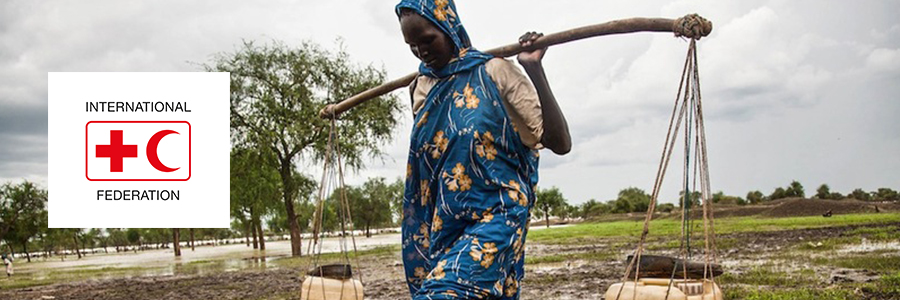Even in the age of online media, radio has remained the medium that reaches the widest audience in Africa. This makes radio a critical tool for our work at the Red Cross and Red Crescent. It links us with the rural and remote families we serve by hosting open discussions, getting feedback and sharing life-saving information during disasters and humanitarian crises. Most importantly, radio assists us in bringing communities together and, using their diverse voices to enable them to define their own solutions together.
Today, on World Radio Day, we celebrate radio as a medium that promotes access to information and freedom of expression. Here’s how we are using radio in Nigeria and Burundi to raise awareness and mobilize local development within rural families.
Radio brings critical health information to Nigeria’s north-east
For people in north-east Nigeria, radio is not only a source of entertainment and news but also education. The Nigerian Red Cross began a weekly live radio show called “Tattuana Da Red Cross”, which means “Discuss with Red Cross”. The show invites personalities from different sectors to discuss topics ranging from hand washing and sanitation to HIV and AIDS and malaria.
The show, which began on 14 November 2017, broadcasts on 91.7 khz Radio Gotel, a private Radio Station with the widest coverage in north-east Nigeria, reaching about seven States in Northeast and North Central Nigeria.
“We’ve had calls from across north-east Nigeria – all contributing to the programme and appreciating the efforts of the Red Cross,” says Auwal Jauro Umar, IFRC’s community engagement and accountability officer in Nigeria.
“Some of the most interesting calls received include; ‘is it wise for animals to share the same drinking water with human beings?’ ‘Can you force a person with symptoms of cancer to go for treatment’ and ‘Why is polio vaccine meant for children and not adults?’”
The radio show has had such a large impact on the people that the Adamawa State Government has reviewed its monthly environmental sanitation exercise.
Preparing communities for future disasters in Burundi
The Burundi Red Cross is also reaching out to communities across the country via radio using a bi-monthly radio show that helps communities respond to future disasters. The show – “La voix de la Croix-Rouge”, which translates to the “Voice of Red Cross” in French – airs on the first and last Saturday of every month at a local radio station with national coverage. The show encourages communities to not only understand the vulnerabilities and risks in their areas but also have a disaster and risk reduction plan of action.
“It is important for communities to be able to assess their vulnerabilities and capacity in order to know how best to respond,” says Jean Baptiste Niyungeko, coordinator of Emergency Operations at the Burundi Red Cross.
“This is what saves countless lives and builds communities’ resilience to future disasters.”
Sylvestre Gacece, head of Emergency Operations in the north of Burundi, is a frequent guest of the show and has witnessed positive changes since it began airing.
“A lot of communities are thinking about reforesting their hills by planting tree nurseries because they already have maps of high-risk areas,” says Sylvestre.
He has seen a number of communities implementing disaster preparedness and prevention strategies like this, including the province of Kirundo, which has had numerous recurring droughts but is at the forefront of implementation.
According to Red Cross volunteers who interact with listeners daily, the show has captivated Burundians across the country, bringing them together to discuss common experiences and providing them with tactile ways they can improve the lives of their families and communities.
Original source: International Federation of Red Cross And Red Crescent Societies
Published on 13 February 2018

